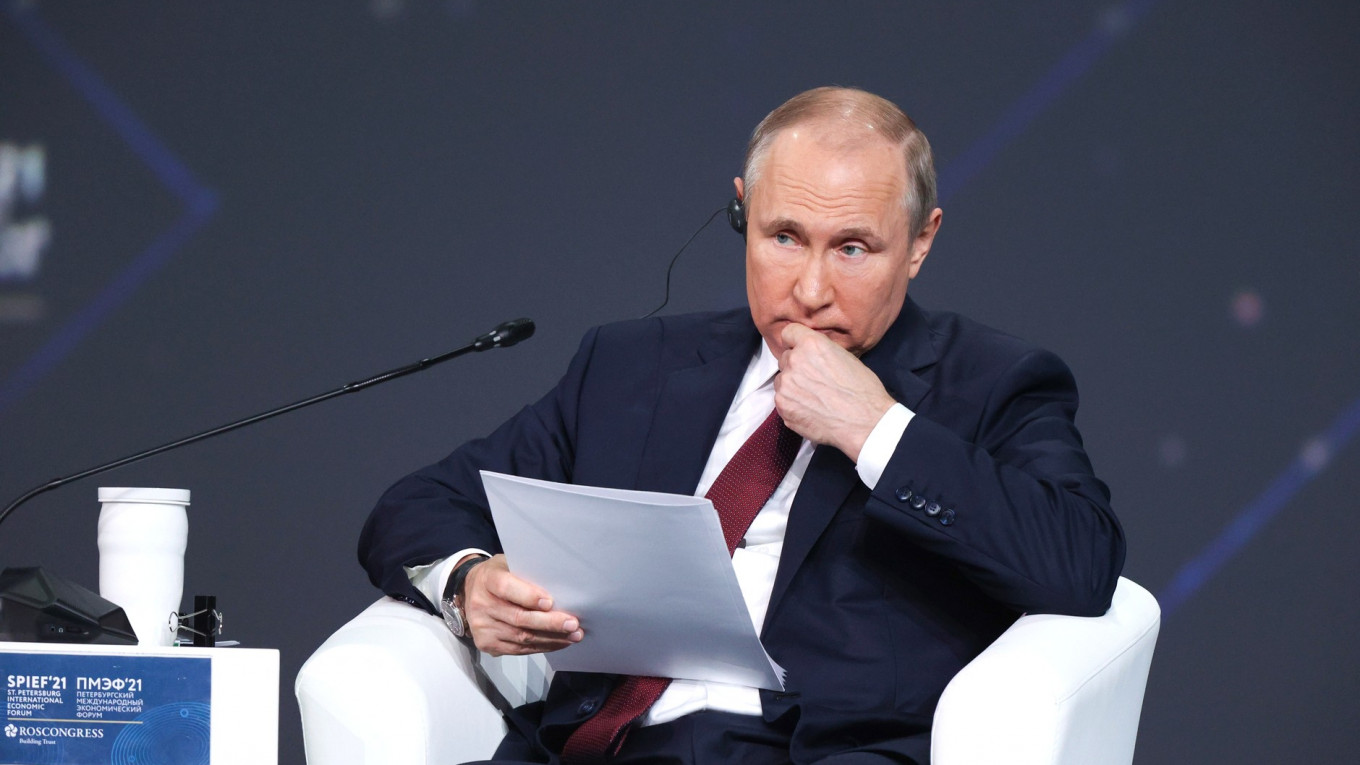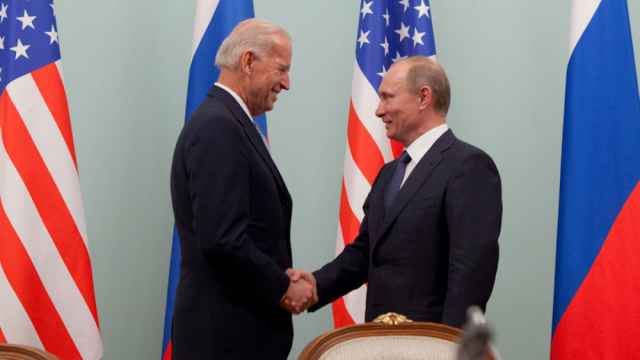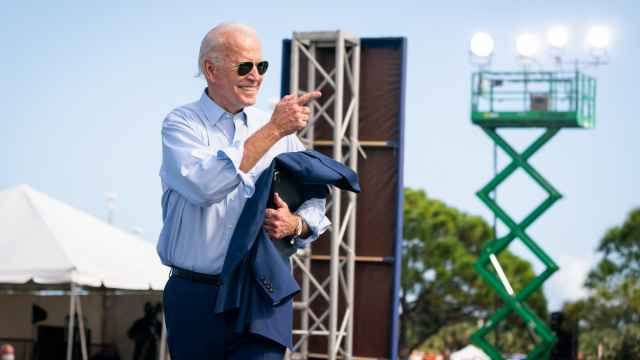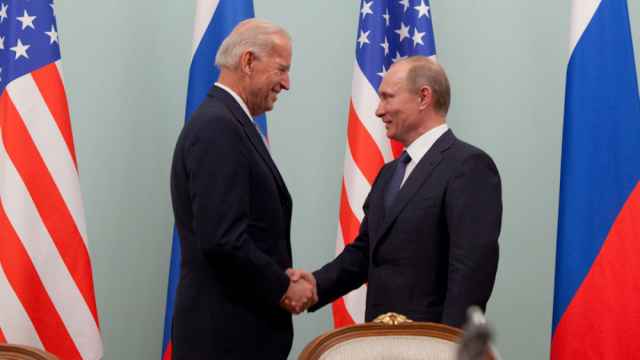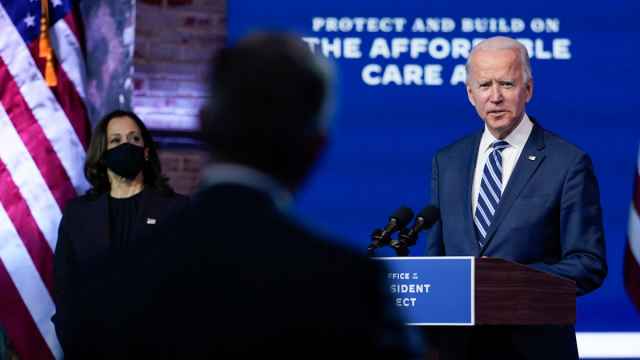In anticipation of the meeting between presidents Vladimir Putin and Joe Biden in Geneva, the Kremlin is not looking for a reset, or even a détente. Nor is there any prospect of a grand bargain of the kind that some Russians thought potentially doable at the start of the Donald Trump presidency. There are no illusions in Moscow: adversarial relations with Washington are here to stay.
Russian unilateral concessions are also out of the question in the face of consolidated U.S. power and Washington’s closer coordination with allies. In principle, President Putin would be open to some sort of strategic compromise with the United States, but he must know that President Biden and the U.S. political class as a whole are not interested in that, to put it mildly.
Nor does Putin need the meeting as proof of him being on an equal footing with Biden. From the Kremlin’s perspective, Russia’s international status does not rest on the fact of holding periodic one-on-one meetings with an American president, but rather on the ability to reliably deter U.S. military power and on being resilient to mounting U.S. economic, financial, and political pressure in the form of various restrictions.
That said, Moscow has set itself several tasks for the Geneva meeting: above all, to explain to Joe Biden in no uncertain terms where Russia’s red lines lie. These include inviting Ukraine to join NATO, deploying U.S. military forces and bases—particularly INF-range missiles—in Ukraine, condoning Kyiv’s attempts to recover Donbas or Crimea by force, seeking to prize Belarus away from Russia, and so on.
In addition to that, Putin will engage with Biden on the modalities of a structured dialogue on strategic stability, potentially leading to negotiations on a new U.S.-Russian arms control accord. It might also be good to mutually lift restrictions on Russian and U.S. diplomatic representations in each other’s country, to include the return of Russian diplomatic property seized by Washington. In Moscow’s view, a dialogue on cybersecurity issues with the United States would make sense. However, no Russian apology with regard to its alleged interference in U.S. elections should be expected.
Putin is certainly not looking for a shouting match with Biden in Geneva. He does not have to prove to his audience at home that he can stand his ground and push back against Biden’s rhetoric. Putin will listen, of course, to what Biden has to say, but no discussion of Russian domestic politics will ensue.
Rather, Putin will probably be interested in assessing where Biden’s real concerns lie; where the sensitive areas may be in which mutual restraint, rather than unattainable compromise arrangements, may be the best way forward for now; and how the United States might act and respond under different scenarios. The focus of the conversation will be solely on international issues, both bilateral and global.
The importance of Vladimir Putin’s meeting with Joe Biden should not be exaggerated. Putin did not seek out the meeting. When offered one by Biden, Putin did not rush to accept Biden’s invitation, but took time to consider it. To Putin, Biden’s invitation was never a reward: as the leader of a great power and one of the two nuclear superpowers, he finds it normal to transact business with his U.S. counterpart. Putin’s recent messages to the wider world are less about what he can do together with the American president, and more about what Russia can do alone—and, if need be, against the wishes of the U.S. government.
With all that in mind, the meeting in Geneva may be useful to both sides. The confrontation between them will continue, but hopefully with more secure guardrails built and maintained around it. As for the future of the U.S.-Russia relationship, it will not be decided at top-level meetings, but shaped in the very course of the ongoing confrontation. The most important thing is that it does not get out of hand.
This article was first published by the Carnegie Moscow Center.
A Message from The Moscow Times:
Dear readers,
We are facing unprecedented challenges. Russia's Prosecutor General's Office has designated The Moscow Times as an "undesirable" organization, criminalizing our work and putting our staff at risk of prosecution. This follows our earlier unjust labeling as a "foreign agent."
These actions are direct attempts to silence independent journalism in Russia. The authorities claim our work "discredits the decisions of the Russian leadership." We see things differently: we strive to provide accurate, unbiased reporting on Russia.
We, the journalists of The Moscow Times, refuse to be silenced. But to continue our work, we need your help.
Your support, no matter how small, makes a world of difference. If you can, please support us monthly starting from just $2. It's quick to set up, and every contribution makes a significant impact.
By supporting The Moscow Times, you're defending open, independent journalism in the face of repression. Thank you for standing with us.
Remind me later.



